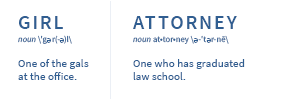From Heleo authored by Heleo Editors:
“Simon Sinek is a bestselling author and leadership expert whose TED Talk, “How Great Leaders Inspire Action,” has been viewed over 40 million times, making it one of the most popular TED Talks of all time. He recently joined Jordan Harbinger on The Jordan Harbinger Show to discuss how to build trusting relationships, and why we all get by with a little help from our friends.
Jordan: I would love it if we could go over how trust is influenced by shared values and culture, and the role that trust plays in groups. The example you give in Find Your Why was how you run into Americans overseas and you’re like, “Hey, you’re from New York, I’m from Michigan—we should totally hang out for the day!” Whereas if I met somebody from New York here in Silicon Valley, I would not care at all.
Simon: Trust is essential because we want to know that somebody’s got our backs. Like how do you know your friends are your friends? Love and trust and all of these things, they’re feelings, not instructions. You cannot order people to trust each other. They are feelings, and they are born out of the environment. The environment comes from shared values and shared belonging.
As you said, I live in New York, but if somebody comes up to me and says, “I’m from New York too, we should be friends,” I’m like, “You’re weird.” But if I’m standing in Paris, where I don’t feel like I belong, and I hear an American accent on the Paris Metro, I’m going to walk up and say, “Where are you guys from? You’re from Alabama? I’m from New York!” And we’re going to be friends because neither of us feels like we belong. Simply hearing an accent, or knowing that these people have a common sense of what we stand for and the experiences we’ve had, creates a sense of camaraderie amongst us in this world in which we don’t feel like we belong.
It’s tribalism, and the modern-day tribe is the company—so the best companies are values-based. They have a sense of purpose and cause, and when we work there, we feel like we can be ourselves. Trust is a biological construction born out of the environments we’re in.”
